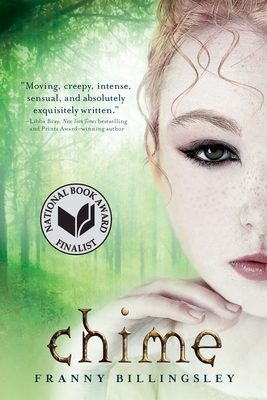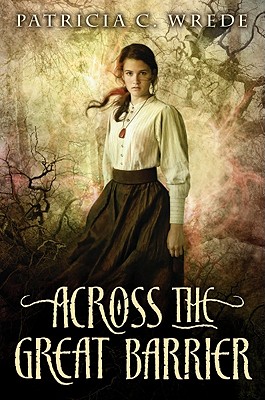
Book talk: Briony is a wicked girl. Her temper combined with her supernatural powers have already resulted in permanent damage to her twin sister, the burning of her library, and a flood in her house. Sometimes she forgets just how evil she is and begins to think that perhaps she could get close to the handsome new lodger, but then she remembers what happens to those who get close to her and that she doesn't deserve happiness. She must do two things: remember that she is wicked and protect her sister. But her powers do allow her to see the spirits that others can't and it's those spirits that are sending a plague of swamp cough to the village children. Is it worth the risk of meeting with them, if it means that she can make the disease go away? Or will the combination of Briony and these magical creatures produce even more deadly results?
[Reading the first chapter aloud is sure to generate interest as well--it's short and sweet and intriguing]
Rocks my socks: The language in this novel is absolutely gorgeous and it establishes the tone and setting well. I felt completely immersed in Briony's swampy world whenever I opened the book, which was far different from the spring break setting in San Diego that was my reality at the time. I love novels that can transport me so wholly. I liked the main characters as well, despite Briony's constant self-loathing that got a bit old at times. I loved Eldric and Briony's relationsip, especially with Briony's early description of it: "In a proper story, antagonistic sparks would fly between Eldric and me, sparks that would sweeten the inevitable kiss on page 324. But life doesn't work that way. I didn't hate Eldric, which, for me, is about as good as things get." I particularly appreciated the different perspective the ending sheds on characters that the reader, and Briony, thought they knew.
Rocks in my socks: The end disappointed me on several levels (highlight for spoiler) Billingsley had a lovely set up to play with the idea of fate and whether or not someone can be born evil but instead she just said well Briony isn't a witch after all so she isn't evil. Clearly implying that if she had been a witch then she would have been evil and there wasn't anything she could have done. In fact the story doesn't seem to have any problem with killing actual witches. At the end we see a witch character who is dying because she has no one to feed off of and not an ounce of sympathy is spared for her, despite the fact that Briony so recently believed herself to be a witch and that the witch was only guilty of feeding herself the only way she apparently could. If a creature's only source of nourishment and survival is a human can they really be called evil for trying to stay alive? Is a lion evil for eating a zebra? This was particularly disappointing to me considering that earlier in the novel Briony defends the spirit that is sending out the swamp cough that is specifically aimed to kill children by saying that he was just trying to prevent them from draining the swamp and thereby killing him. But feeding off hot boys? No excuses!
While I'm under the spoiler umbrella I think I'll mention the fact that I was not entirely okay with the way they handled assault in the novel. At one point a character tries to force Briony and she fights back and is saved before things go too far by Eldric. Then five minutes later she's making out with Eldric. I'm not sure if I was in Briony's shoes I'd be in the mood for kissing anyone right after something like that happened. Then at the end after Eldric's wounded he pulls an 'I'm still a man and stronger than you' and forces her to the floor and says "I can still unlace a girl's chemise." He then lets her go and apologizes but apparently it wasn't his fault it was because she was getting down on herself and he's so in love with her that her whining hit him as a hard blow so he clearly had to physically assault her back. I'm oversimplifying of course but just the implication that it's ever a someone's fault that they are assaulted is not one I'm okay with. To make it even worse he then proposes to her immediately after all this and after briefly pointing out that he was acting like a jerk when he forced her to the ground a minute ago she accepts and acts like he's the one doing her a favor. Come on! I wanted to see those two crazy kids work it out as much as anyone else but this was not the way to do it. I really liked the book until the end. I just wish it had pulled a French ending and cut it off immediately after the climax with no falling action.
Every book its reader: The novel depicts some pretty bleak circumstances, but it does end on a hopeful note. There is a bit of violence as is to be expected in a novel with witches and spirits and ghosts and at least one zombie but not excessive amounts. There aren't any explicit scenes but oblique references are made to things like Blackberry Night (which apparently usually results in many hasty weddings) and arsenic addiction (it was thought to increase virility--who knew?) Overall I'd keep it for 7th grade and up.
Chime by Franny Billingsley
Buy it or check it out today!




